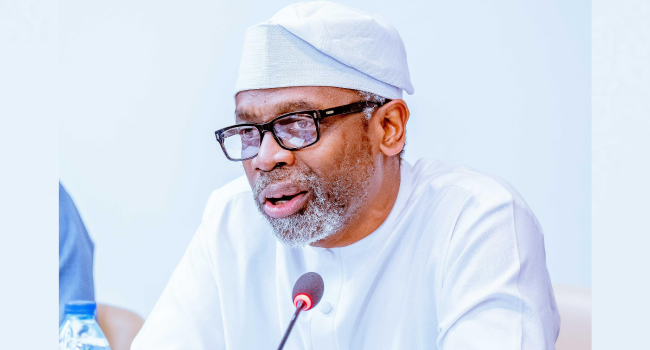Headlines
No Timeline Set for Oronsaye Report Implementation – Gbajabiamila

Chief of Staff Femi Gbajabiamila confirms that no timeline has been established for the implementation of the Oronsaye Report, which aims to streamline Nigeria’s public service.
Femi Gbajabiamila, President Bola Tinubu’s Chief of Staff, stated that the implementation timeline for the Steve Oronsaye Report has not yet been established.
During an official visit to the Nigeria Extractive Industries Transparency Initiative (NEITI) headquarters in Abuja on Tuesday, he made this statement during an interview.
Claims of the report being stalled were debunked by Gbajabiamila, who formerly served as Speaker of the House of Representatives.
According to him, the implementation of the policy will be facilitated by appropriate measures being taken by the Federal Government.
“It’s true that we’ve discussed Oronsaye’s Report for months now, but as Gbajabiamila stated, we are currently diligently working on it because anything worth doing is worth doing well.”
The task is more complex than it appears. A group has been established to investigate the matter, and I anticipate that we will have access to the conclusive report shortly with plans for execution not far behind.
An exact timeline is not yet possible, but the task will be completed shortly. We prioritize thoroughness over anxiety and hasty completion. Rest assured that it will be done soon.
READ ALSO: Court clears former HoS Oronsaye on the charge of N190m fraud.
During ex-President Muhammadu Buhari’s eight years in office, the 12-year-old report underwent some motions without any actual movement. However, the new government states that implementing the report is consistent with its goal of reducing costs.
In February, the Oronsaye report was fully implemented following approval from the Federal Executive Council chaired by President Bola Tinubu. The implementation involves merging certain parastatals, agencies and commissions while others will either be subsumed, scrapped or relocated.
The government stated that this aligns with the goal of decreasing governance expenses and enhancing efficiency throughout the entire governing process.
The FEC established an eight-member committee tasked with executing the mergers, eliminations and relocations in 12 weeks to guarantee successful implementation of the suggested modifications.
Despite six months passing since the report was released, it has still not been put into action. Instead, in July, the President established a Ministry of Livestock Development separate from the Agriculture Ministry which received varying responses.
In 2011, the Presidential Committee on Restructuring and Rationalisation of Federal Government Parastatals, Commissions and Agencies was established by then President Goodluck Jonathan with Oronsaye serving as its chairman.
In April 16, 2012, the committee presented a report of 800 pages which pinpointed overlapping agencies as one of the reasons for unnecessary expenditure.
According to the report, there were a total of 541 parastatals, commissions and agencies. It suggested that out of these organizations, 263 should be scaled down to 161 while recommending abolishing 38 altogether and merging an additional 52.
